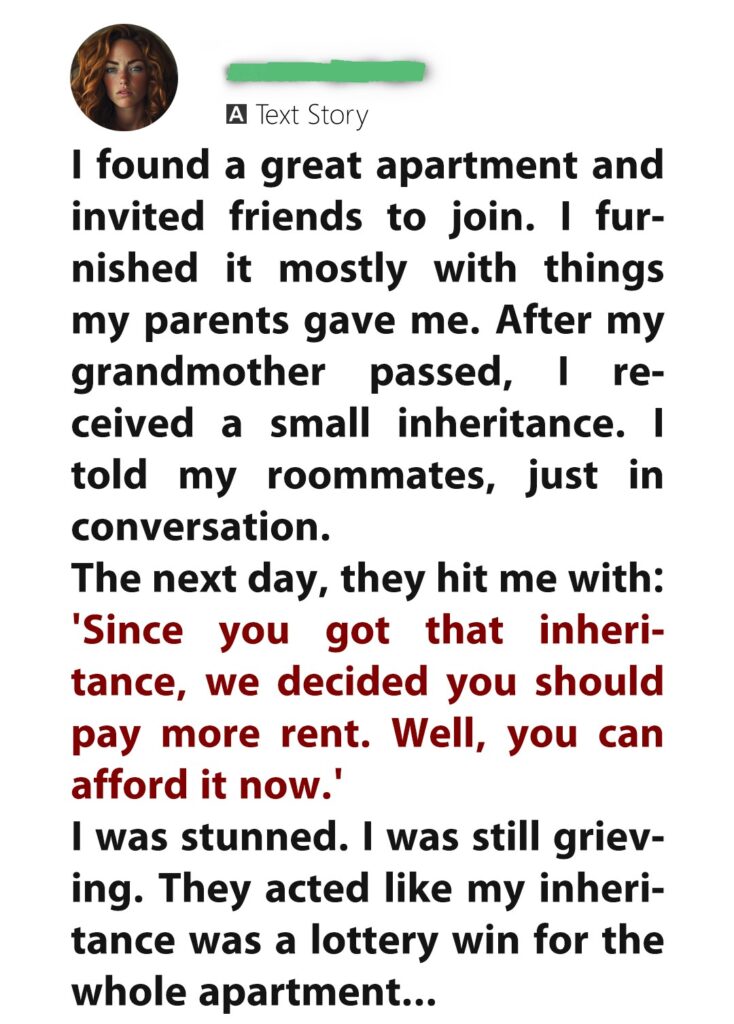When my grandfather passed away, I inherited a modest sum—enough to ease my student debt and maybe put a down payment on a future home. I didn’t flaunt it. I didn’t change my lifestyle. But somehow, my roommates found out.
At first, it was subtle. Jokes about me being “the rich one” started popping up. Then came the suggestion: “Since you’ve got money now, maybe you should pay a little more rent.” I laughed it off, thinking they were teasing. But they weren’t.
They sat me down one evening, serious faces all around. “It’s only fair,” one said. “You can afford it. We’re struggling.” I reminded them that we all signed the lease equally. That I hadn’t asked for this money—it was a gift from someone I loved who was gone. But they didn’t care. They saw my inheritance as a resource to be tapped.
I felt cornered. Guilty. Was I selfish for saying no? Was I heartless for not wanting to subsidize their lives? I started questioning myself. But then I realized: this wasn’t about fairness. It was about entitlement.

I offered to help in other ways—sharing groceries, covering utilities for a month. But that wasn’t enough. They wanted more. Eventually, the tension became unbearable. I moved out.
Looking back, I learned something vital: boundaries matter. Generosity should come from the heart, not from pressure. My inheritance wasn’t a community fund—it was a legacy. And I had every right to protect it.


